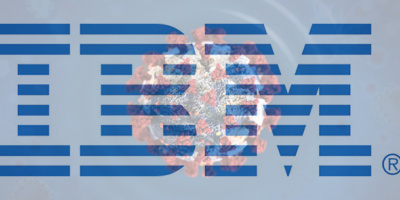Openness is a powerful concept with the promise of significant benefits for all of us-if we can prevent UNIX zealots from holding it hostage.
In the open systems world, users will be able to interconnect systems regardless of vendor. They will be able to access data stored anywhere and apply the same skills across the systems. Applications will be portable with relative ease and will run on virtually any size machine.
The problem is not our vision of open systems but how to get there. And about that, there is still confusion-some of it reasonable and some engendered by a few who claim or imply that you must have UNIX to achieve open systems and industry standards.
That claim or implication, of course, has little to do with fact and a lot to do with marketing. They are marketing the idea that if you want open systems, you must buy UNIX; never mind the operational problems.
One of the claims made for UNIX openness is that it will provide "vendor independence." With UNIX systems in place, users can declare themselves independent of system vendors.
Unfortunately, the UNIX customer also has to buy a database from Oracle or Ingress or Sybase or someone. He is now dependent on that vendor, or a vendor of his systems or communications software, or a system integrator.
About a year ago, UNIXWORLD carried a lead story on "Database Hell" and asked its readers, "Are you trapped for all eternity by your database vendor?" The article noted that "database vendors lock in their customers in large and small ways," and said, "There's good reason to view database migration as a march through hell."
The question facing the user is not whether to be vendor independent, because that's really impossible. The only question is which vendor and at what level the user wants to be dependent.
Another way to hold openness hostage is to sell the idea that you must use UNIX to adhere to industry standards.
Obviously, that's not true. IBM has declared its support for standards across the product line, and IBM President Jack Kuehler has stated, "Open systems are the key to our future."
After interviewing executives at Fortune 1,000 firms, Forrester Research Inc. reported last year that 70 percent of the respondents cited integration or interoperability as the reason for moving to open systems.
Today, the AS/400, particularly in terms of interoperability, is one of the most open systems on the market.
OS/400 supports Transmission Control Protocol/Internet Protocol (TCP/IP) which has become a de facto standard providing peer-to-peer connectivity for both local and wide area networks, and Open System Interconnection (OSI) of the International Organization for Standards, enabling systems supplied by different vendors to connect and communicate.
The operating system supports a broad range of other interoperability standards and protocols including Structured Query Language (SQL), 3270, ASCII, Ethernet, Token Ring, X.25 and NetView. It supports IBM's Systems Appli-cation Architecture (SAA) and Systems Network Architecture (SNA), and advanced peer-to-peer networking (APPN), ensuring connectivity and application portabil-ity among IBM systems. Also, IBM has stated that the AS/400 will support the Distributed Computing Environment (DCE) of the Open Software Foundation.
Version 2 of the OS/400 supports Integrated Services Digital Network (ISDN), providing high-speed voice and data communications through common twisted pair wire, and Distributed Relational Database Architecture (DRDA), IBM's SAA architecture to ensure access to remote network databases. DRDA provides SQL relational functions to remote systems and is being sup-ported by a dozen major vendors of UNIX-related databases, as well as by IBM.
With the help of business partners who provide conversion and coexistence solutions, you can now connect the AS/400 to any ASCII device and almost anything else. In fact, one partner demonstrated the versatility of connection software by using an AS/400 to tell a kitchen toaster how dark to make the breakfast toast.
Well, okay, but you need UNIX for portability so you can move applications, and that's tough with proprietary systems.
There are now two basic versions of UNIX-one from AT&T's UNIX Systems Laboratories, supported primarily by Sun Microsystems and NCR; and the other from the Open Software Foundation, supported by IBM, HP and DEC. They form the basis of some 200 implementations, all proprietary, because the first thing a vendor does is to add extensions to improve his implementation.
However, despite the proprietary extensions, portability is relatively easy in the UNIX world. For now, it is still generally more difficult with DEC VMS and OS/400. But that is changing. Industry-wide applications portability is being implemented through fourth-generation languages, such as Cognos, Inc.'s PowerHouse and Progress from Progress Software Corporation. Applications in these languages are highly portable to and from the AS/400 and other systems, including UNIX. Further, IBM has pledged AS/400 adherence to POSIX, the Portable Oper-ating System Interface for Computing Environments, being developed by committees of the Institute of Electrical and Electronic Engineers (IEEE).
But for customers of the AS/400, portability is not a major goal. They have more than 20,000 applications available worldwide, and any one of them will run on any AS/400, from the smallest machine, priced like a big PC, to the largest multiprocessor.
What advocates do not talk about when they talk about UNIX-only openness is the other side of the coin-complexity versus ease of use.
Most UNIX systems today offer a component-based environment, where the customer must construct the software system piece by piece, integrate the whole shebang, ensure security and communications, and then manage the system from the ground up and integrate future applications and software release levels.
In contrast, the AS/400 provides easy operation with its integrated relational database, high-level security and extensive system management and communications facilities, and hundreds of application enablers.
It's a little like building your own stereo. Years ago, you could buy a kit and use a soldering iron to put all the parts together. Today, you can still buy standard components, like UNIX hardware and software, and then you have to integrate them or have someone integrate them for you. Or you can get a complete package like the AS/400-integrated, balanced and tuned, with standard interfaces for almost any kind of additional components.
However, if UNIX advocates can successfully convince the market that openness is limited to UNIX, they will literally turn the situation on its head. They will keep the AS/400 out of the ballgame and promise customers the benefits of open systems-without discussing the fact that they will be open to all the problems of deciding what kind of system software to buy and integrate, and what kind of staff they need to make it all work together.
With UNIX, in fact, some customers will be unpleasantly surprised at "open systems" come Christmas-time. When they unwrap the software toys from under the Christmas tree, they will find those two fatal warnings-batteries not included, some assembly required.





















 More than ever, there is a demand for IT to deliver innovation. Your IBM i has been an essential part of your business operations for years. However, your organization may struggle to maintain the current system and implement new projects. The thousands of customers we've worked with and surveyed state that expectations regarding the digital footprint and vision of the company are not aligned with the current IT environment.
More than ever, there is a demand for IT to deliver innovation. Your IBM i has been an essential part of your business operations for years. However, your organization may struggle to maintain the current system and implement new projects. The thousands of customers we've worked with and surveyed state that expectations regarding the digital footprint and vision of the company are not aligned with the current IT environment. TRY the one package that solves all your document design and printing challenges on all your platforms. Produce bar code labels, electronic forms, ad hoc reports, and RFID tags – without programming! MarkMagic is the only document design and print solution that combines report writing, WYSIWYG label and forms design, and conditional printing in one integrated product. Make sure your data survives when catastrophe hits. Request your trial now! Request Now.
TRY the one package that solves all your document design and printing challenges on all your platforms. Produce bar code labels, electronic forms, ad hoc reports, and RFID tags – without programming! MarkMagic is the only document design and print solution that combines report writing, WYSIWYG label and forms design, and conditional printing in one integrated product. Make sure your data survives when catastrophe hits. Request your trial now! Request Now. Forms of ransomware has been around for over 30 years, and with more and more organizations suffering attacks each year, it continues to endure. What has made ransomware such a durable threat and what is the best way to combat it? In order to prevent ransomware, organizations must first understand how it works.
Forms of ransomware has been around for over 30 years, and with more and more organizations suffering attacks each year, it continues to endure. What has made ransomware such a durable threat and what is the best way to combat it? In order to prevent ransomware, organizations must first understand how it works. Disaster protection is vital to every business. Yet, it often consists of patched together procedures that are prone to error. From automatic backups to data encryption to media management, Robot automates the routine (yet often complex) tasks of iSeries backup and recovery, saving you time and money and making the process safer and more reliable. Automate your backups with the Robot Backup and Recovery Solution. Key features include:
Disaster protection is vital to every business. Yet, it often consists of patched together procedures that are prone to error. From automatic backups to data encryption to media management, Robot automates the routine (yet often complex) tasks of iSeries backup and recovery, saving you time and money and making the process safer and more reliable. Automate your backups with the Robot Backup and Recovery Solution. Key features include: Business users want new applications now. Market and regulatory pressures require faster application updates and delivery into production. Your IBM i developers may be approaching retirement, and you see no sure way to fill their positions with experienced developers. In addition, you may be caught between maintaining your existing applications and the uncertainty of moving to something new.
Business users want new applications now. Market and regulatory pressures require faster application updates and delivery into production. Your IBM i developers may be approaching retirement, and you see no sure way to fill their positions with experienced developers. In addition, you may be caught between maintaining your existing applications and the uncertainty of moving to something new. IT managers hoping to find new IBM i talent are discovering that the pool of experienced RPG programmers and operators or administrators with intimate knowledge of the operating system and the applications that run on it is small. This begs the question: How will you manage the platform that supports such a big part of your business? This guide offers strategies and software suggestions to help you plan IT staffing and resources and smooth the transition after your AS/400 talent retires. Read on to learn:
IT managers hoping to find new IBM i talent are discovering that the pool of experienced RPG programmers and operators or administrators with intimate knowledge of the operating system and the applications that run on it is small. This begs the question: How will you manage the platform that supports such a big part of your business? This guide offers strategies and software suggestions to help you plan IT staffing and resources and smooth the transition after your AS/400 talent retires. Read on to learn:
LATEST COMMENTS
MC Press Online